
23 minute read
A DREAM COME TRUE
The return of the Spirits Bay honey brand was a dream come true for the Murray whānau – a decade after it passed out of their hands.
Celebrated at an emotional ceremony earlier this year, the whānau came together with a delegation from Ngāi Tahu and its subsidiary, Oha Honey, who brought Spirits Bay home. Kaituhi DEAN NATHAN reports.
Advertisement
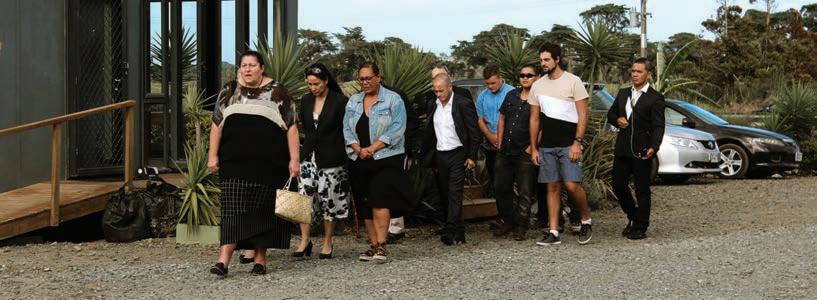
Left: Manuhiri being welcomed. Below left: Mata Murray watches on as Tā Tipene O’Regan signs handover document. Below: Nicholas Murray and Cathy Cherrington Murray.
Facing page: Mata Murray (left) addressing the crowd as Nadine Tunley and daughter Blanche Morrogh watch on. Photos of loved ones passed including Rapine and Saana proudly adorn the table in foreground.
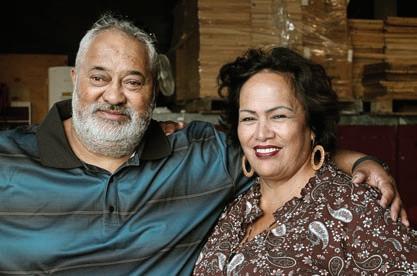
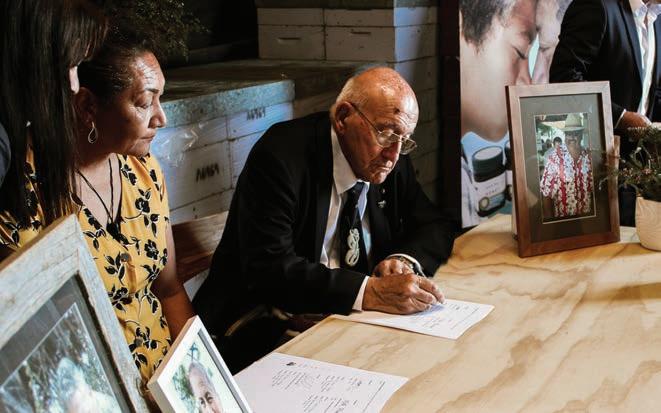
PHOTOGRAPHS: SUPPLIED
mata murray has recalled the sacrifice she and her husband Rapine made in the remote bushland of Kapowairua (Spirits Bay) to get their mānuka honey project off the ground. “I realised that you can actually work up to 20 hours and go to sleep for four and do the whole thing again,” says Mata. “But I guess I enjoyed it at the same time – living the dream. My husband could see the dream and he kept me inspired.”
Rapine was the youngest son of the revered Ngāti Kurī elder Saana Murray, renowned for her leadership of the WAI262 treaty claim over intellectual property rights to traditional Māori knowledge of flora and fauna.
Saana was raised at Kapowairua in the early 1900s when the mānuka and kānuka trees had a wide range of uses, including building materials, immunity from insect bites and ailments, and using the leaves for tea. She recalled being taught by her father how to use mānuka (ti-tree) to smoke wild bees out from rocks and trees to harvest honey, later traded for flour and essentials.
Rapine saw the enormous potential and had the inspiration needed to realise his dream. In 2007, he and his business partner Denis Watson launched the Spirits Bay honey brand. Sadly, the dream was short-lived for Rapine. He died in 2010 and Denis retained the Spirits Bay brands, leaving the whānau to rebuild what their father started with their newly developed Kai Ora business. Fast forward several years and Denis Watson was still producing and selling mānuka honey products through his company, Watson & Son. In late 2015 he entered a partnership with Ngāi Tahu Holdings, who went on to take full ownership of the business in 2017, rebranding it Oha Honey. It was only then that the whakapapa of Spirits Bay came to the attention of new chief executive Nadine Tunley.
“It’s pretty significant. I probably didn’t realise at the time just how significant it was for the Murray family,” she says.
“In reality for me, once I realised the importance of the brand to the whānau, it was obvious that the rightful place for it to be was here.”
Nadine was part of a Ngāi Tahu contingent led by Tā Tipene and Lady Sandra O’Regan, who were warmly welcomed to the headquarters of Kai Ora Honey in Awanui in March. Befitting the occasion, the pack house was abuzz with honey bees and tension in the air as Tā Tipene stood to address those gathered.
Left: (l-r): Mabel Murray, Blanche Morrogh, Nadine Tunley and Marara Murray. Above: Mata Murray with Tā Tipene O’Regan.
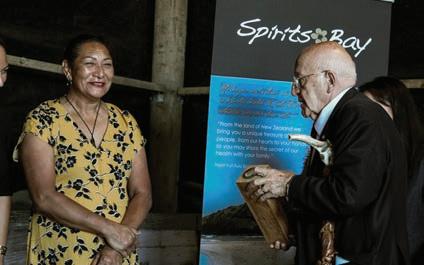
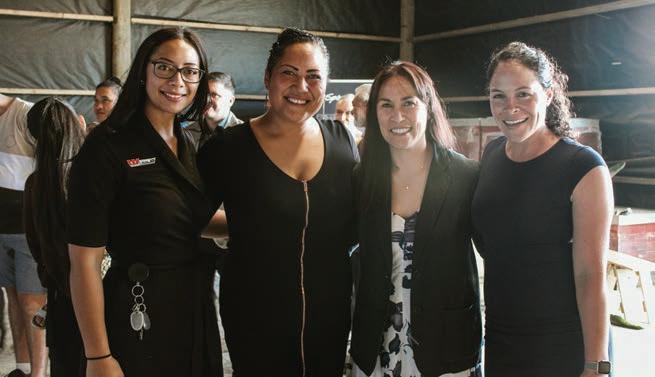
NADINE TUNLEY Spirits Bay Chief Executive
Tā Tipene explained that the rōpū from Ngāi Tahu had come to return the name that was part of the history of their newly-acquired company. He commended the outstanding leadership of Nadine Tunley in leading the process.
Loud applause followed the signing of documents to complete the transfer of the property ahead of Ngāi Tahu presenting the Murray whānau with a special vessel, named Te Whata Raumati, made of maire and pounamu for the safekeeping of their taonga.
“Never in a million years would I have dreamed this would be returned,” said Mata.
“And to have it returned to us today. This sort of thing just doesn’t happen! It just doesn’t, and it did. Thank you, thank you.”
Nadine and her team had been talking to Rapine’s daughter and managing director of Kai Ora Honey, Blanche Morrogh, for 18 months prior to this event. She reinforced her mother’s joy at the outcome.
“Thank you, Nadine, and everyone that’s turned up today to celebrate with us. It’s been over 15 years since Dad started Spirits Bay with our grandmother.
“Dad would say, ‘The bees are the way, honey is the way, mānuka honey!
“Looking back now, the courage that our father showed in a time of uncertainty has really brought us to where we are today. Because 10 years ago we lost this tohu and were left to start all over again. It is our honour to have it back. We cannot thank you enough. We are very blessed.”
The ceremony brought closure for all parties along with a lesson on how the fledgling honey industry needs to do business in the future.
“It’s nice to finally sign it over and just to see the meaning for these guys is amazing,” said Nadine.
“This is a young industry that’s struggled. Some of that struggle has come about through a lack of understanding and everyone fighting for position. To do good business and especially for Māori, it’s best to do it with integrity and honesty and to live by values.
In a play on words, Tā Tipene quipped about the ‘HOHA’ process that had just been completed in order for OHA honey to operate with integrity.
The whānau presented him with a shell of the native flax snail. The pupu harakeke is endemic to the far north and can be found at Kapowairua (Spirits Bay) where Rapine was laid to rest. His mother was buried next to him a year later. While neither lived to see their dream come to fruition, they continue to provide the inspiration that has brought Kai Ora Honey to where it is today.
Blanche says: “It means a lot to us to have established a skincare range named after Nana (Saana). Hana Botanicals was her dream. Her first love was her skincare regime. And so it was only fitting that we named it after her because Hana also means to radiate and to be ambient and glow. “It’s taken us from our little backdoor where we used to sell honey down the street to now selling it throughout New Zealand and overseas in Japan and Taiwan and the European Union through Romania and Germany. So it’s been an amazing ride.”
The return of the Spirits Bay honey brand is in effect the final realisation of a dream that began all those years ago.
“Today was quite overwhelming for my brothers and sisters and my mother,” says Blanche. “Spirits Bay is a very bright guiding light for us to build further success for our whānau here in Taitokerau. And now that we have it back there’s been so many different and amazing plans going through our minds.”
Have 200,000+ Maori

this week?

From Te Hiku o Te Ika to Te Waipounamu over 200,000 Maori tune-in to 21 Maori Radio Stations.

A “whanau-friendly” format in both Maori and English caters for the whole whanau 24/7.
To find out how Maori Media Network can help you reach this Maori audience visit our website. You'll also be able to listen to the stations online.
www.maorimedia.co.nz
Sky 423 Tahu FM
Invercargill
Tahu FM
Kaitaia
Te Hiku o Te Ika & Tai FM [Rangatahi]

Mangamuka Bridge
Tautoko FM
Auckland
Radio Waatea
Ngaruawahia
Radio Tainui
Tokoroa
Raukawa FM
Te Kuiti
Maniapoto FM
New Plymouth
Te Korimako o Taranaki
Whanganui
Awa FM
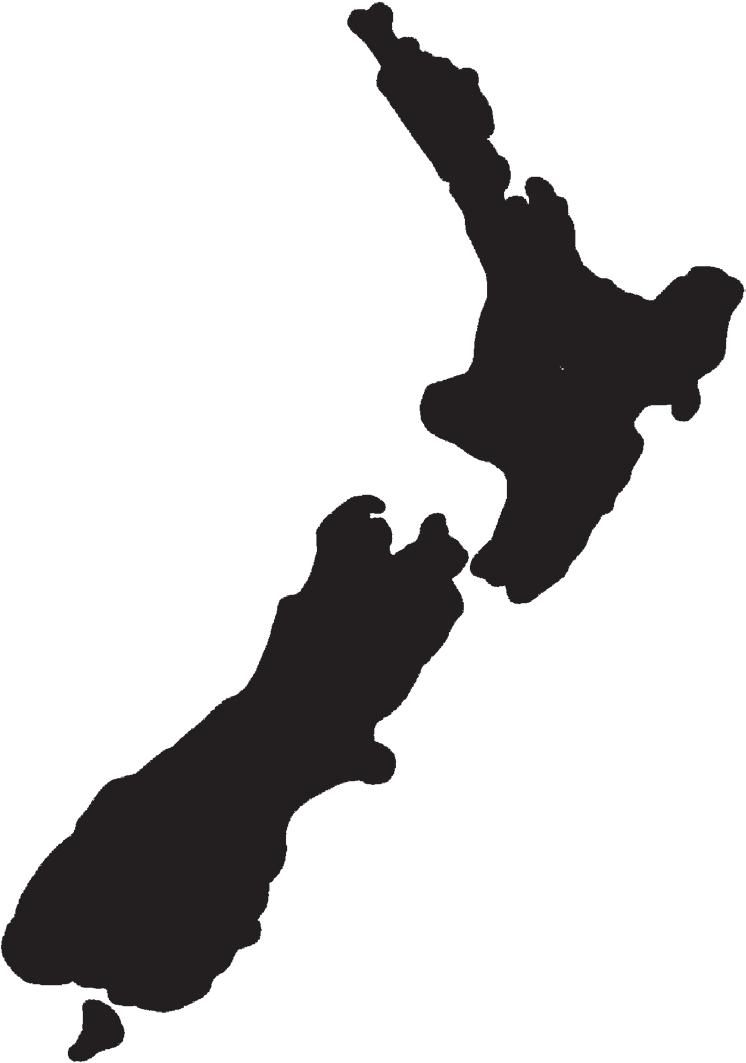
Turangi
Tuwharetoa FM
Whangarei
Ngati Hine FM
Paeroa
Nga Iwi FM
Tauranga
Moana Radio
Rotorua
Te Arawa FM
Whakatane Tumeke FM
Ruatoria/East Coast Radio Ngati Porou
Gisborne
Turanga FM
Napier/Hastings Radio Kahungunu
Palmerston North
Kia Ora FM
Wellington
Te Upoko o Te Ika
Kaikoura Tahu FM
Timaru Tahu FM
Dunedin
Tahu FM
Christchurch
Tahu FM
Maori Media Network is a national advertising bureau specialising exclusively in Maori media and communications.
Whether you need advertising placement on 6 stations or 22, full ad production, translation, a Maori music bed — it takes just one call to Maori Media Network to deal with it all!
Contact us today for media advice or an obligation free quote.
Maori Media Network Ltd
Phone : 04 496 3330 Fax : 04 496 3332 Email : info@maorimedia.co.nz Web : www.maorimedia.co.nz
Life in the USA – A Grim Reality
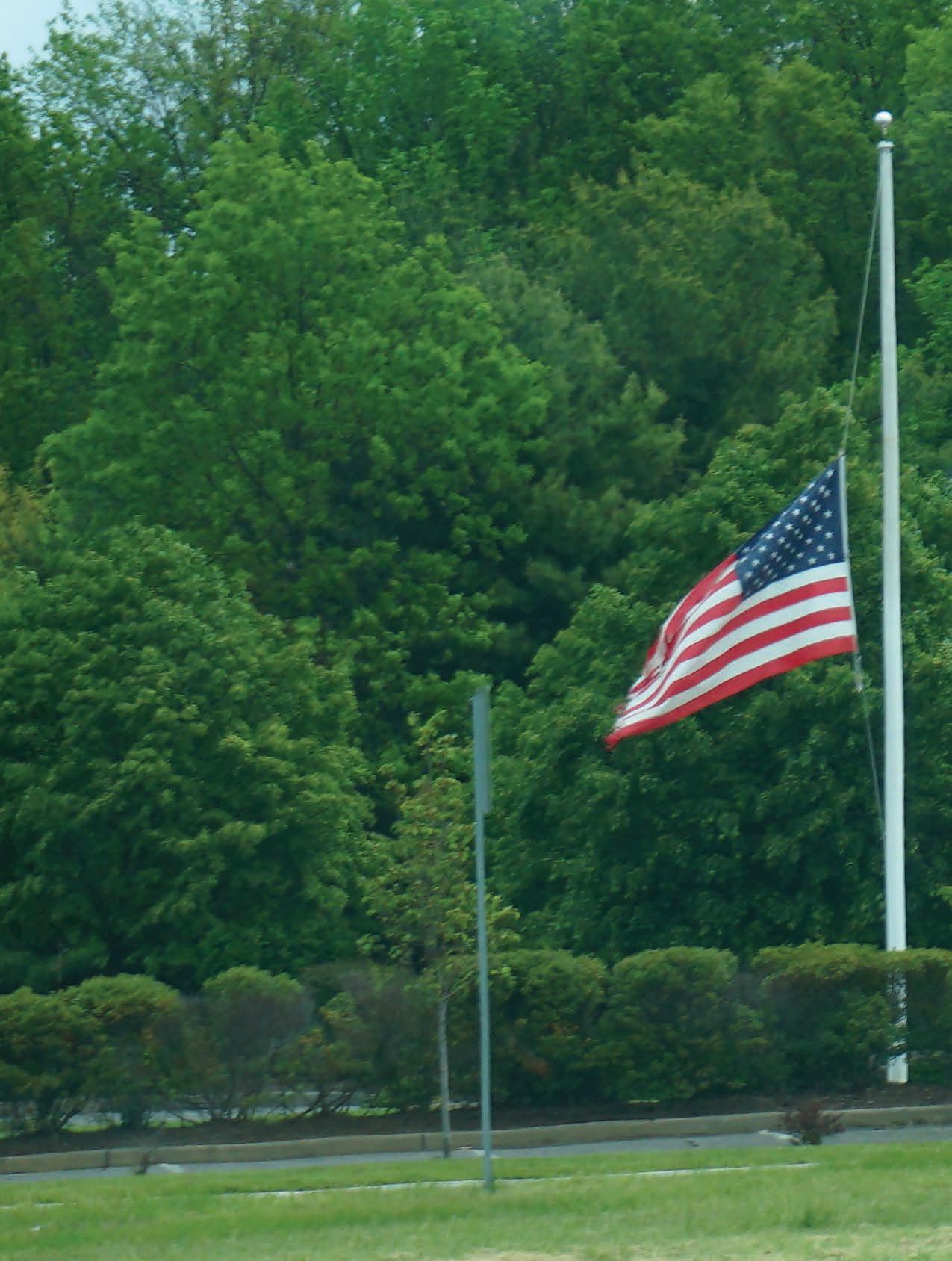
When things are going wrong in America I hear from people: are you all right, what is really happening over there, when are you coming home? “It is beyond me why you have stayed this long, ” wrote a friend I have known since high school. “He tāngata, he tāngata, he tāngata,” I write back.
Tonight, people are rioting in Minnesota, the first state I lived in as a 17-year-old exchange student. People are rioting in Georgia, the state I call home. In Minneapolis, a police officer knelt on the neck of a black man until he could no longer breathe. Say his name – George Floyd. In Glynn County, Georgia, an ex-detective and his son have been charged, three months after killing a black man out for a run. Say his name – Ahmaud Arbery. They are not the first or the last, just the latest victims of modernday lynching. Police kill people of colour in the US. There is no pause for a pandemic. This is the country I have lived in for 18 years and the country I am preparing to leave. Nā ILA COUCH.
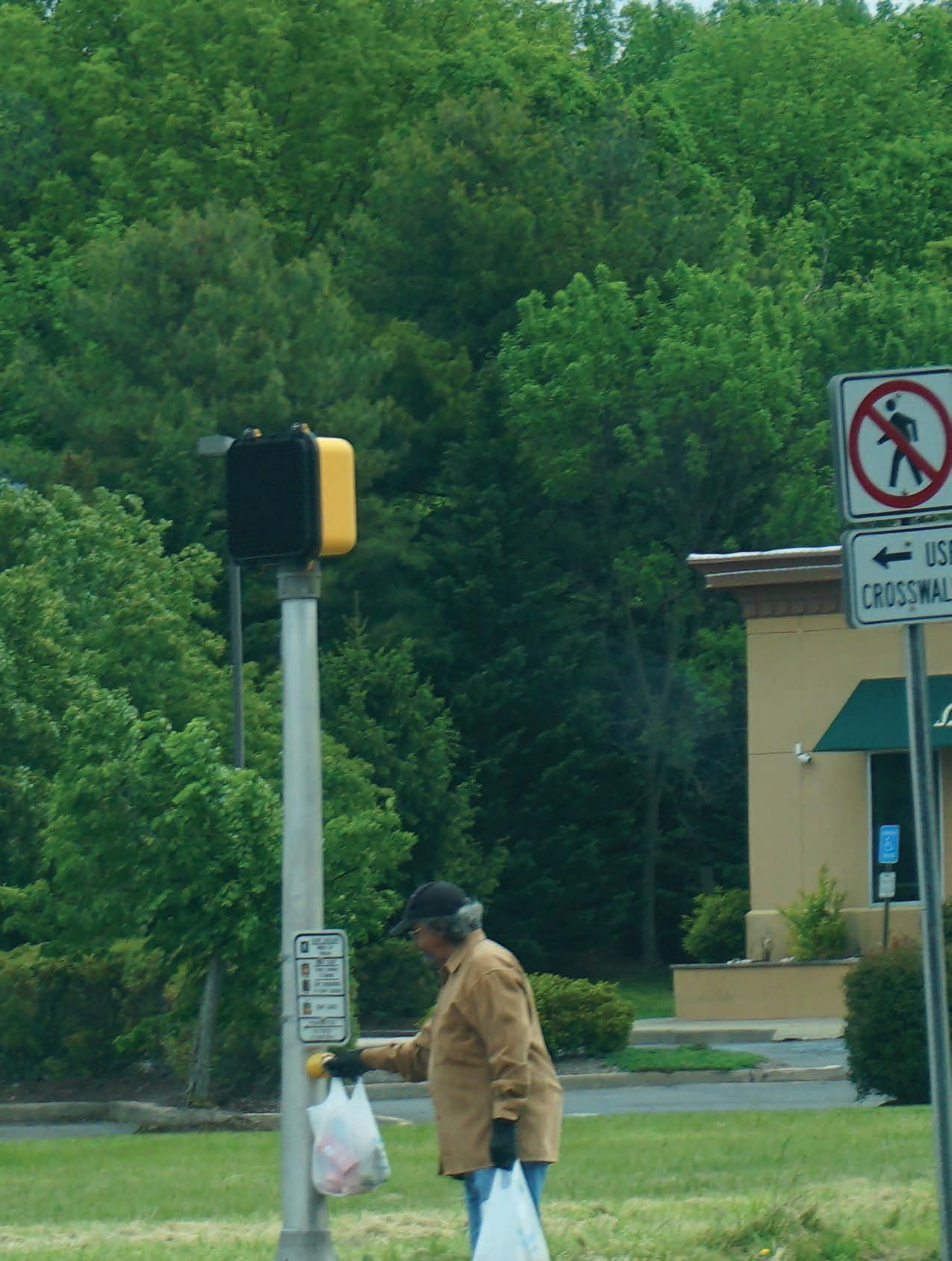
i started writing this article weeks ago during a 20-hour car ride through 13 states. This is a story about cancer in the time of COVID-19, the inequity of experiences during this pandemic, and living in a country with no leader. Here we go.
It is springtime in America, but the only thing growing in the state of Maine is my sister-in-law’s hair. Outside, fat flakes swirl around us. We are in the reverse of a snow-globe. We are inside a sneeze of a million particles. I think about life like this now. Getting out of the shower I watch the way droplets move together in a vapour that circulates and disperses when the bathroom fan is switched on. Everything reminds me of the virus.
We are on a journey from Maine, the northeastern most state in the US where my sister-in-law lives, to Georgia in what southern hip-hop artists dub “The Dirty South”. Our bubble consists of sister-inlaw Dawn, nephew Jeremy, husband Jake and myself. It was formed eight months ago, well in advance of COVID-19. Jake and I moved
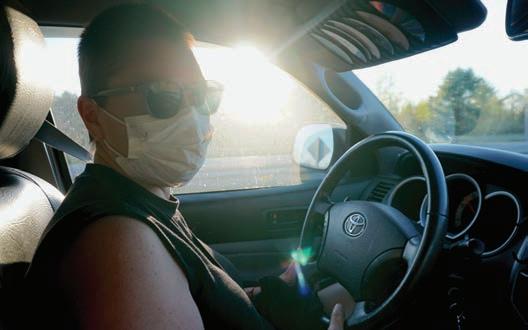
from Atlanta, Georgia and my nephew from Denver, Colorado, to help support Dawn while she underwent cancer treatment. If someone you love is going through chemo, you know all about this bubble. Our world became smaller as we focused on our family and recovery. The road trip marks the end of Dawn’s treatment and the beginning of our move back to Aotearoa. We are going home to Atlanta to pack up our lives.
Dawn was born in the north and has only just returned after spending 30 years in Birmingham, Alabama, where she raised three kids. On the drive I ask my nephew Jeremy what he wants people to know about Alabama. “Not everyone is racist,” he says, “just most people.” A minute later he tells me he wishes he could think of something good to say. “My Dad’s family is from there.”
Through the windows of passing vehicles masks dangle from rearview mirrors. Some people are fully kitted out as they drive – masks and gloves – this is what we wear when we stop at a gas station before crossing from Maine to New Hampshire. A sign on the door says, “Five customers at a time”. Behind the cash register, protected by a plastic sneeze guard, a woman frantically counts us as we come in. I am counting too. I look around and tell her I think there are five of us. I watch her body relax. She waves me in.
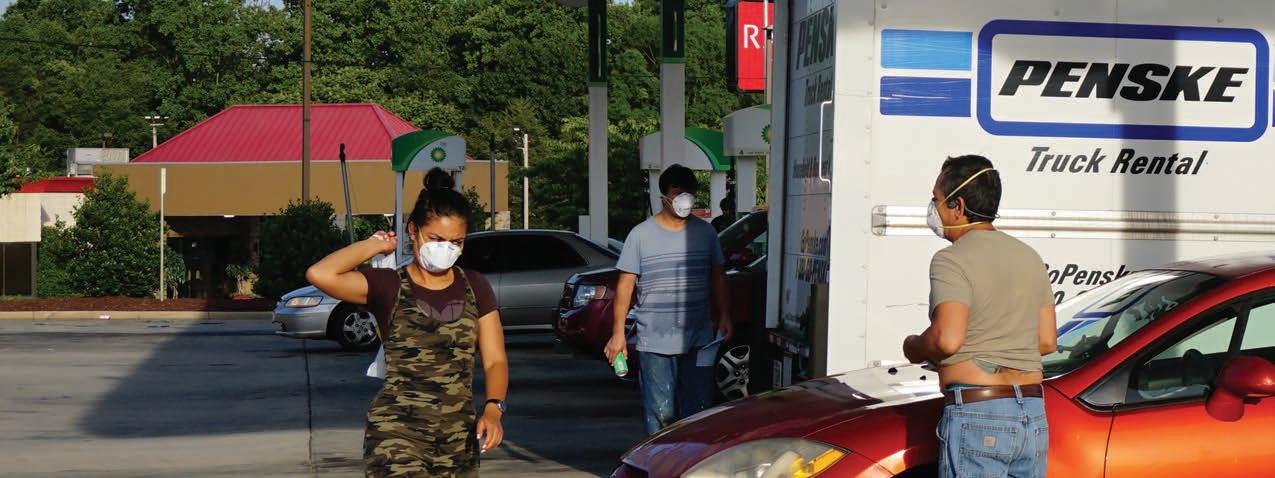
In each state, electronic billboards urge us to stay safe and stay home. The death toll reminds us what is at stake: Massachusetts 5,797, New York 22,619, New Jersey 10,249. In Maryland, a state with 36,986 confirmed cases, I stand back as a mother and her young daughter, both wearing facemasks, head inside. By the time we get further south to West Virginia we see the first signs of spring. When we stop it feels normal now to only see the top half of people’s faces.
I can’t help but feel a surge of happiness as we cross the state line from South Carolina to Georgia. In an instant, the sight of a Confederate Battle flag changes that. Now, when I look through car windows they are tinted so dark I can’t see inside. After 10 years of living in the South I know why: Police stop people of colour, but you can’t stop what you can’t see. Throughout the country there have been reports of black men followed in stores because they are shopping with masks on. Some are removing their masks and taking their chances on the virus. The odds seem better than being mistaken for an armed robber and being shot and killed.
Back in January when the virus first appeared on our radar, we could do little but watch its advance on television and hope it would not come to our door. By late February we were taking it seriously, but even then we were in the minority in our town wearing masks.
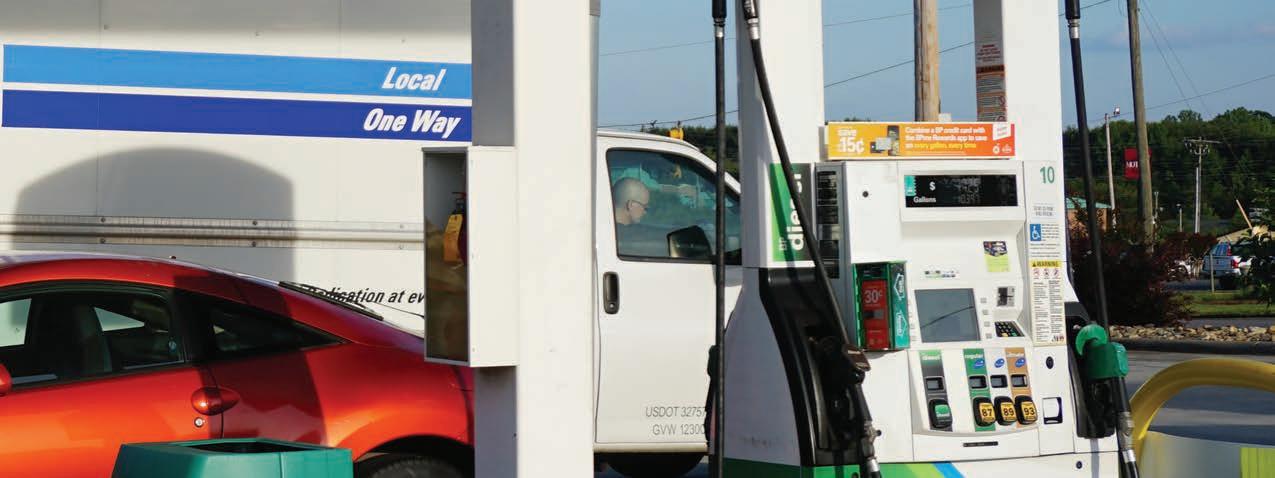
One person was designated to go out for groceries and everything that came into the house was washed. On 11 March, Dawn had her last round of chemotherapy. Looking back now, no one at the hospital was wearing a mask. On 12 March, Maine announced the first case of COVID-19 in the state. The following day the President declared a State of Emergency.
It was hard not to feel a rising panic, but it came full force when the Prime Minister announced Aotearoa was closing its borders. Dawn was struggling to recover from her last round of chemo and even though she looked sicker, she was telling us to go. We had done what we said we would – stayed until the last treatment. I booked two tickets to Auckland via Air New Zealand’s website, but on the final click a message popped up telling us a representative would call back. It took a day and a half before they did and by then my sister-in-law had a fever of 102.8. This time when we took her to hospital we were met with staff in full protective gear. She was given a COVID-19 test and was admitted for an infection that required blood transfusions and fluids. We had no choice but to leave her there and with the hospital in lockdown, visiting would be far from normal.
Just seven hours down the coast from us, hospital staff in New York City were recycling masks and protective gowns, packing bodies in
Top left: With my mask on as we approach the road toll; centre: Gas station;
above: North Carolina highway sign. PHOTOGRAPHS: SUPPLIED
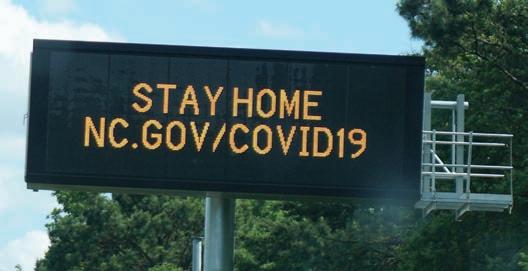
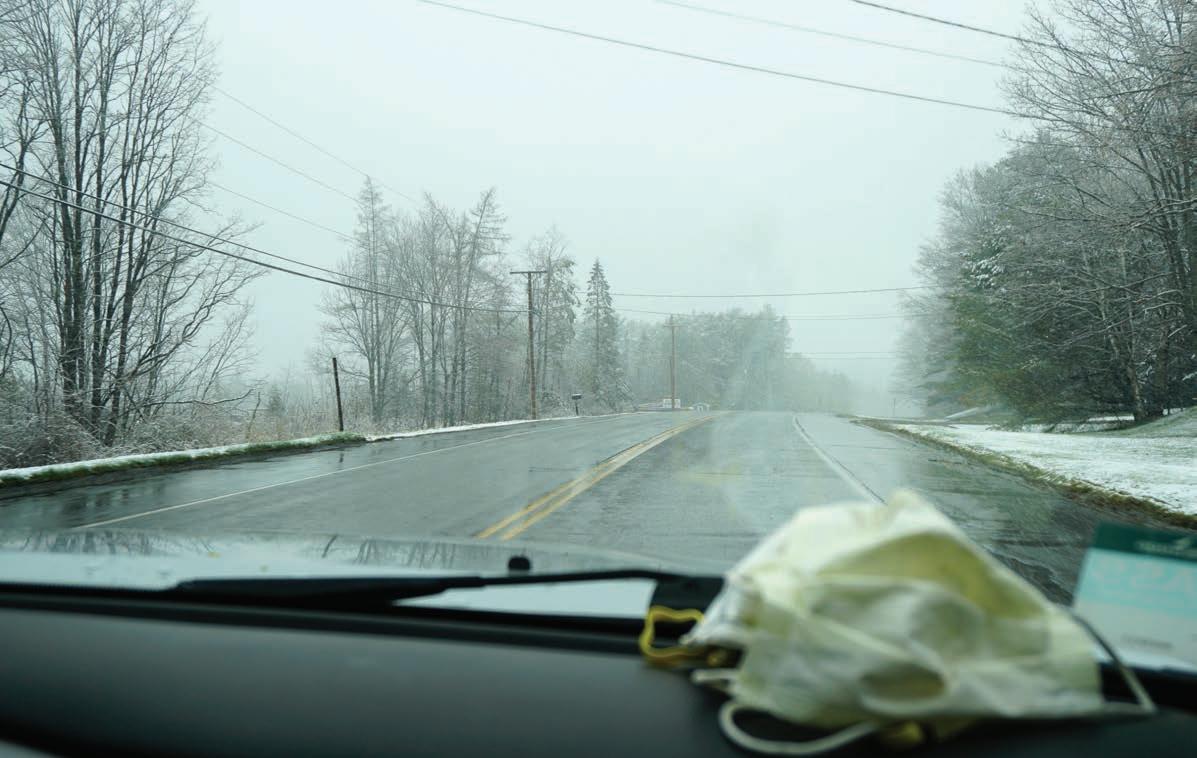
Top: En route; above: Trump 2020 campaign flag.
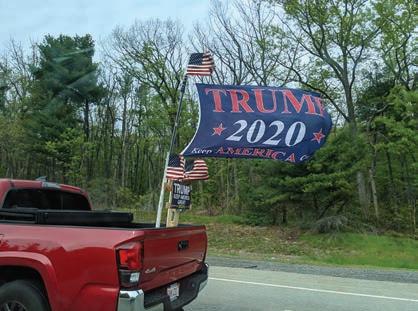
refrigerated trucks, setting up triage tents in Central Park. We watched all this at home on TV. We wondered where our leaders were and after a mind-numbing “Coronavirus Briefing” by the President, we agreed to stop watching live press conferences. It physically hurt the brain to follow sentences that led nowhere, whole thoughts that made no sense.
Absent from any of the daily briefings was the number of corona deaths on Native American Territories in the US. A New York Times article said: “If Native American Tribes were counted as states, the five most infected states in the country would be native tribes.”
A community health centre in Seattle, catering to the health needs of Native Americans, asked government agencies for medical supplies. They were sent body bags.
Each day a new thing that shouldn’t have happened, happened; suggestions the virus would disappear like magic, a parade of corporate leaders praised the President in time allotted to tell us how to protect ourselves; scientists attempted to tell the truth only to be shamed into agreeing with a bully who would not be undermined.
We must be vigilant in protecting our minds. The President is the virus. Major news networks began cutting away from his press conferences; resuming coverage when experts spoke and dipping out again when he came back to counter facts with propaganda. We watched as scientists, doctors, educated men and women watched the President from the sidelines. It felt like we were all assessing a child with a developmental toy. Everyday he tried to force a round block into a square shape. People were dying.
In Atlanta, Mayor Keisha Lance Bottoms challenged the sensibility of allowing some businesses to reopen when parts of Georgia had
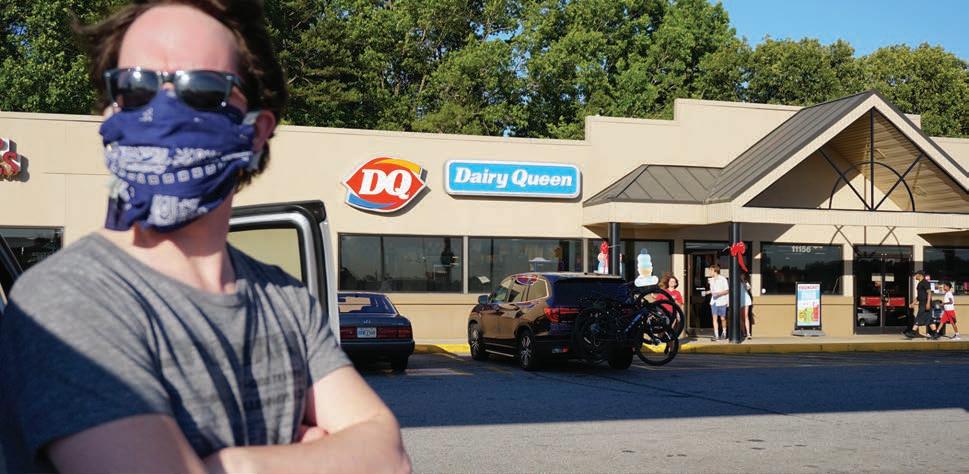
infection rates per capita on par with New York City. Especially vulnerable are African Americans and Latino communities. “In a normal world, we could look to the President of the United States and receive sound, practical advice,” she said in an op-ed. “Instead, we have to caution people not to ingest and inject their bodies with household cleaners.”
On her seventh day in hospital Dawn called with good news; she was being released. Jake parked outside, expecting to see his sister accompanied by staff, someone to wheel her out since it was likely she would be too weak to walk unaided. When she came hobbling through the automatic doors into the car park, shoeless, alone and in her nightgown, Jake realised something was wrong. Essentially this was a prison break. The next day after a good night’s sleep she told us why she checked herself out; the first case of COVID-19 in our small county was in her hospital. It was a nurse who tested positive. “I am going to die in a damn hospital.”
It is hard to believe we have been living with this virus in earnest now for four months. Dawn is cancer-free, but drugs to maintain that status continue to compromise her immune system. Even after the virus is gone, she will need to be careful. Towards the end of our road trip we make one last stop in a rural part of Georgia. People casually stroll in and out of the gas station without masks. Even though I can’t see his face, I can feel the anger emanating from my nephew. I know he is worried for his mother; she is the reason we have been told to cover up. It is hard to understand why people won’t do this until you remember our own President refuses to do it either.
When we roll into the city of Atlanta, birthplace of Martin Luther King Jr., it is the golden hour; the last hour of light before the sun sets. In a city known for its horrible traffic, the pandemic has cleared the streets in a way that makes your arrival feel magical. Yes, there are still people driving like they want to kill you but there are fewer of them. It will be hard to pack up and leave, but this is what we are here to do. The light bounces off high rises in a way that makes you think they have something to do with the reason you love Atlanta so much. In reality you love this place because you met people you love here. Those people took you to places they love, shared with you the people they love. And that is how you fall in love with a city. He tāngata, he tāngata, he tāngata.
I lived in the neighbourhood of Reynoldstown, Atlanta, for close to 10 years and wanted to give the last word on the pandemic, the President and police brutality to my neighbours, my friends.
Top: on the road; above: Atlanta, Georgia.
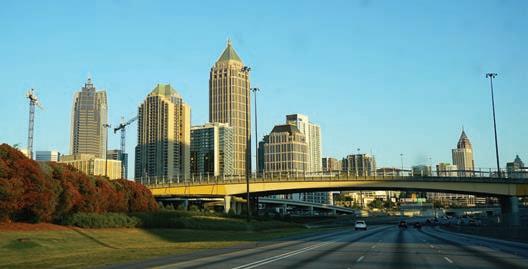
Ila Couch (Ngāti Mutunga, Ngāi Tahu – Te Hapū o Ngāti Wheke) films, photographs, writes and sings about the world around her. Born in Te Ika a Māui and raised in South Auckland, Ila has lived in the United States for the past 18 years. Like her tīpuna who travelled beyond Aotearoa, she has always come home.
I have lived in Atlanta since 1976. I was born in 1934, grew up in Detroit, Michigan, and joined the Navy in 1954. I worked for the military and my specialty is the study of the Soviet Union. I am a student, I have been studying bad people all my life. Stalin was a bad person – Trump is worse. He is a fascist. He is anti-American. What he is doing is very, very wrong. Did you see him with the Bible? He is using religion to get away with racism. I am a private person. People pretty much leave me alone. A black guy asked me about my heritage – no one has ever asked me that – so I said, “I’m going to tell you who I am. My mother was white and my father was brown. Who am I supposed to hate? Tell me, who am I supposed to hate?” I love my country. I love America. I love the people. I know there is a lot of hate. There is more love than hate. Shady Lain
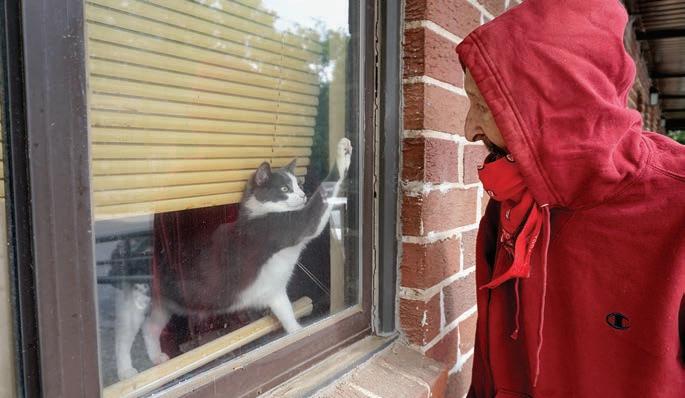
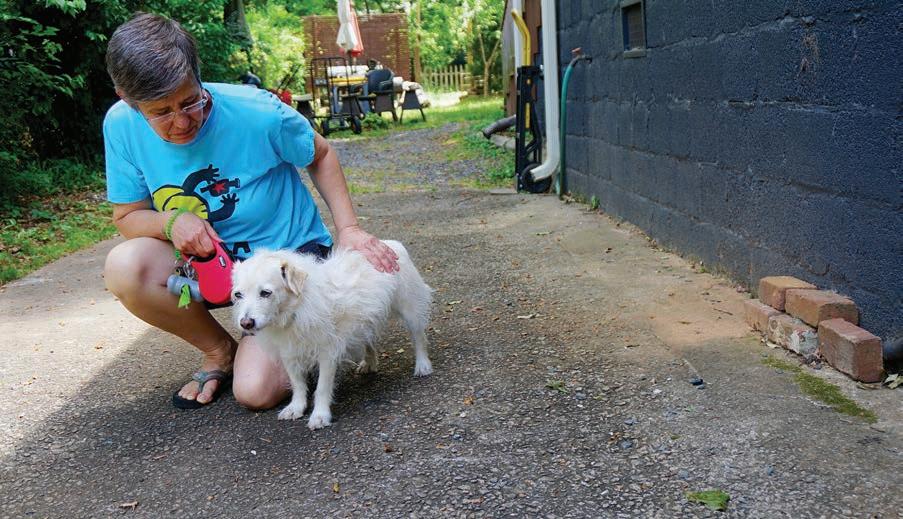
I’ve lived in Reynoldstown for 16 years. During the city’s coronavirus shutdown, I started recalling many of the things I’ve loved about this neighbourhood: a stillness and quiet, the absence of traffic, neighbours talking to each other (albeit at a social distance), the sound of birdsong. It has seemed paradoxical, even painful, that my body would recall elements of a feeling of well-being in the place I live during a pandemic that differentially distributes death to black people and people of colour, lower-income workers, and the elderly. For the past week, a new sound has predominated: the whir of helicopters overhead as they move downtown to monitor and control protestors in the uprising for black lives and racial justice. Part of the machinery of state violence, this new sound in the neighbourhood signals that this spectacular moment of inequality and vulnerability, made so obvious by the virus and police murder, has reignited the need for urgent refusal of slow death. This uprising demands not just recognition that Black Lives Matter but action that makes black lives more livable. Susan Talburt, pictured with Ella
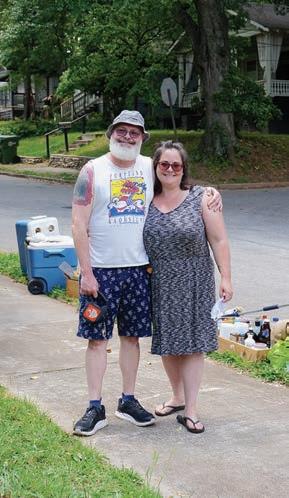
As an educator who works for racial justice in my personal and professional life, it’s important for me to acknowledge and hold space for the life of George Floyd and Breonna Taylor, whose lives were taken by police in the last few weeks, along with the many other black and brown lives that continue to be impacted by police brutality. It’s also important for me to acknowledge and hold space for the massive peaceful and angry protests happening all over our country right now. Of course, we have also been experiencing a pandemic and its ensuing lockdown, which is unprecedented in our lifetimes. These events and experiences, and our bearing witness to them, can take a toll on our emotional, psychological, spiritual and physical well-being, and ultimately our humanity. But they cannot take away the fundamental nature of our humanity, which is grounded in acts of compassion for ourselves and others, and when we nurture these capacities for compassion we strengthen our individual wellbeing and build collective and communal strength. This is how we can work towards systemic change and co-create a better and more humane world.
Lindy Settevendemie, pictured with husband Randy Trammell
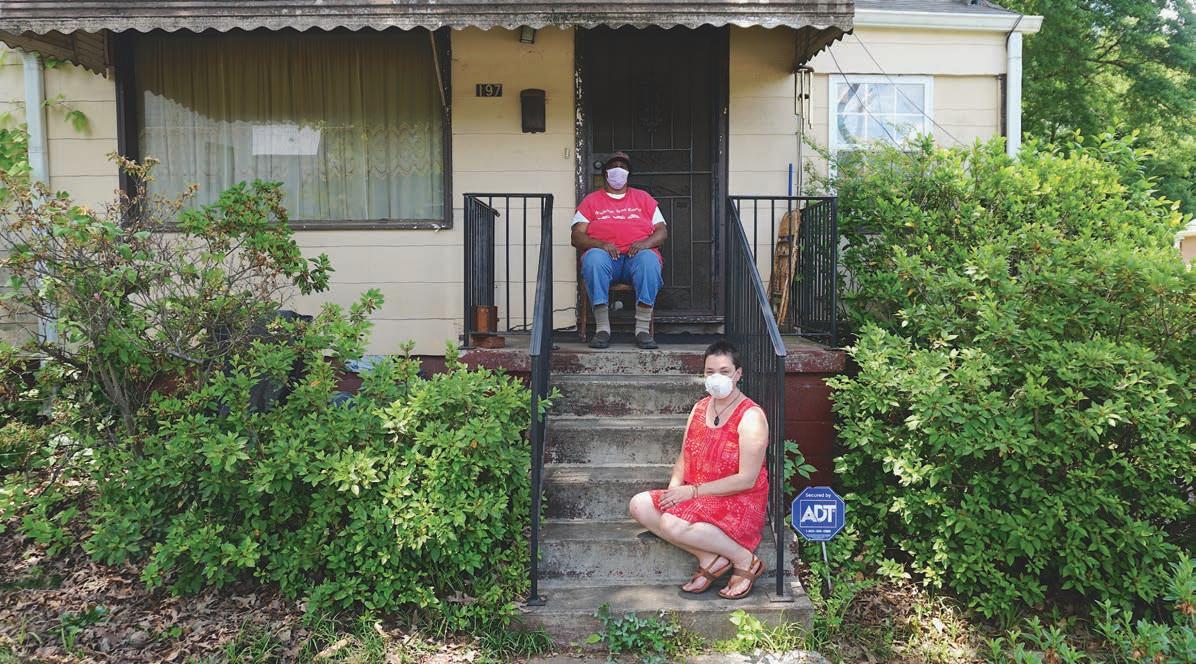
Girl. I don’t know what to say. Everyone is out with their babies, they be jogging, and walking. They don’t have a mask on. They say it’s airborne. Me and mama, we been checked. This stuff been out there, it just ain’t been that bad. I don’t know. I think they are trying to thin us out. You know Trump crazy. I’m a people person. Black people is not against no race. Black people, they can get along with anybody and everybody. They mistreated us, we didn’t mistreat them. White man has always said this is a white man’s world. You know what I’m saying? Now just like they went down there and killed that boy in Brunswick. And I’m going to tell you something. It ain’t never going to go away. I don’t want people to think that I hate, cause I don’t hate nobody. You are the best white friend I have ever had. I just love you so much. I just hate y’all leaving. I’m ready to go too Ila. Portia Webb, pictured with Ila Couch









